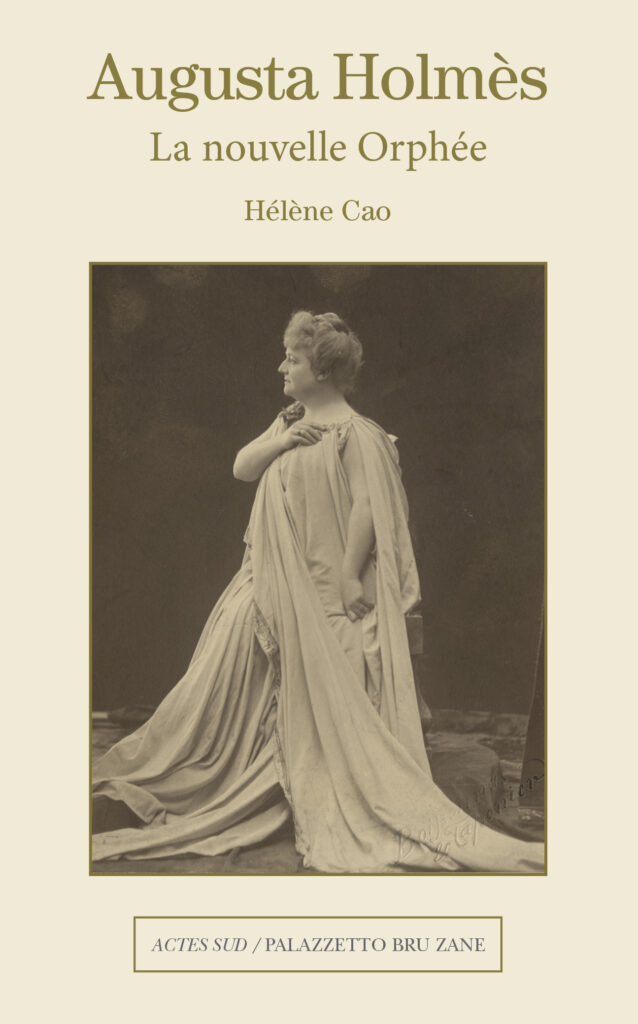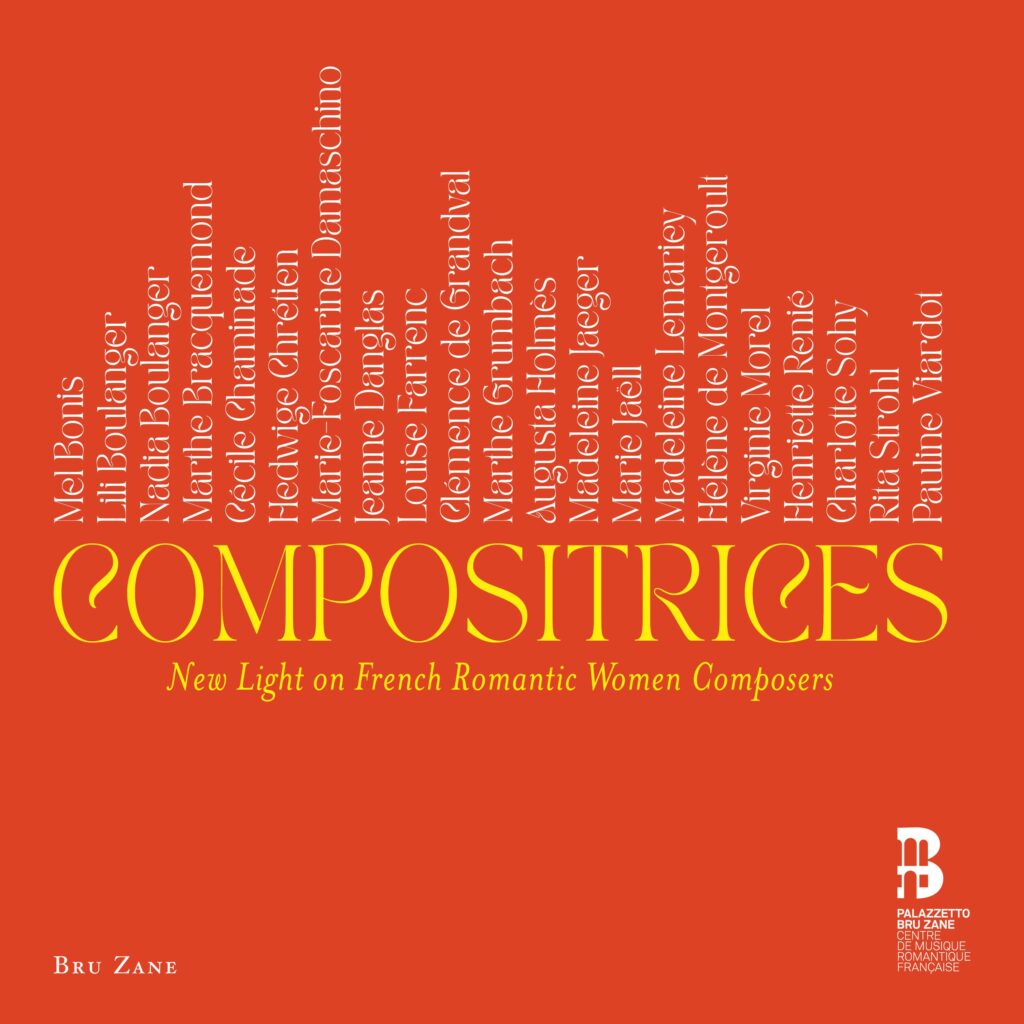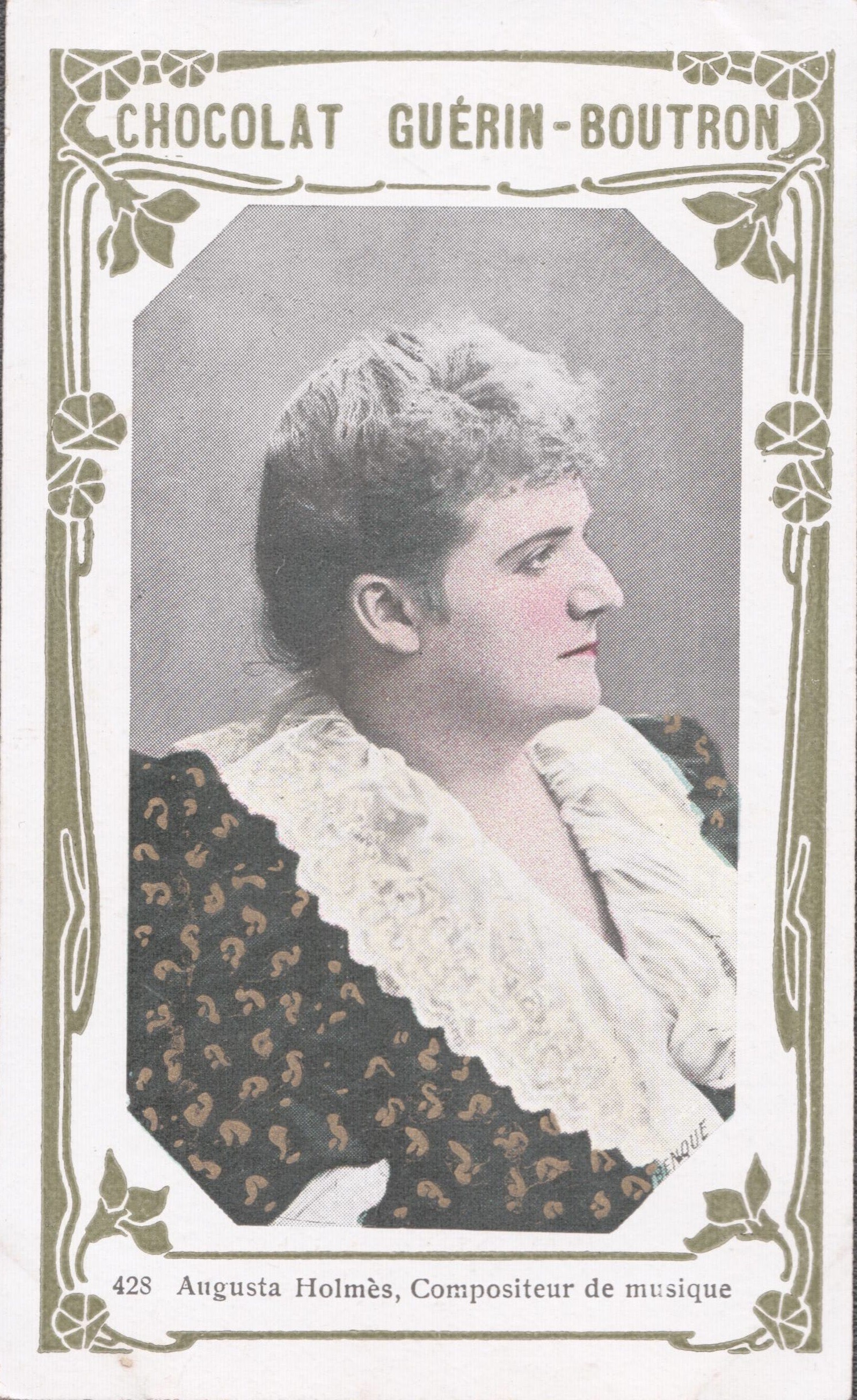Augusta Holmès
La nouvelle Orphée

The career of Augusta Holmès (1847-1903) challenges most of the preconceived ideas we may have about women composers of the Romantic period. A lady of boundless ambition, with a constant desire for freedom, she refused the limitations that were imposed on her ilk. At a time when women were expected to produce short forms (songs and salon pieces), she composed large-scale works – symphonic poems, cantatas and operas – works that were ambitious, politically committed, and oriented towards Wagner, whom she met at the age of twenty. Drawing on texts written by her contemporaries (press articles, reviews, book excerpts), Hélène Cao retraces the life of this fascinating musician. She shows how authors of the time did not quite know what to make of such a very unusual figure, with attitudes ranging from fascination to rejection, and with expressions of misogyny and unwavering support, anti-Wagnerism and advocation of modernity.
The Actes Sud/Palazzetto Bru Zane collection — co-authored books, musicological essays, conference proceedings or archive documents — gives the floor to key actors and witnesses in the artistic history of the 19th century, as well as their present-day critics. Published at the rate of two to four books each season, the collection will examine many aspects of the French Romantic répertoire and the musical life of this period, focusing on the careers of famous or neglected composers as well as the history of the concert, musical genres and performers.
Hélène Cao holds a doctorate in musicology from the École Pratique des Hautes Études and is a graduate of the Paris Conservatoire (CNSM). Her published works include Debussy (Jean-Paul Gisserot), Louis Spohr (Papillon), Thomas Adès le voyageur (MF), Anthologie du lied (Buchet / Chastel) and 600 Mots de la musique (Billaudot). She has also collaborated on the Dictionnaire encyclopédique Wagner (Actes Sud / Cité de la musique), Compositrices. L'égalité en acte (CDMC / MF) and Mel Bonis. Parcours d'une compositrice de la Belle Époque (Actes Sud / Palazzetto Bru Zane).


 Torna indietro
Torna indietro  newsletter
newsletter webradio
webradio replay
replay

